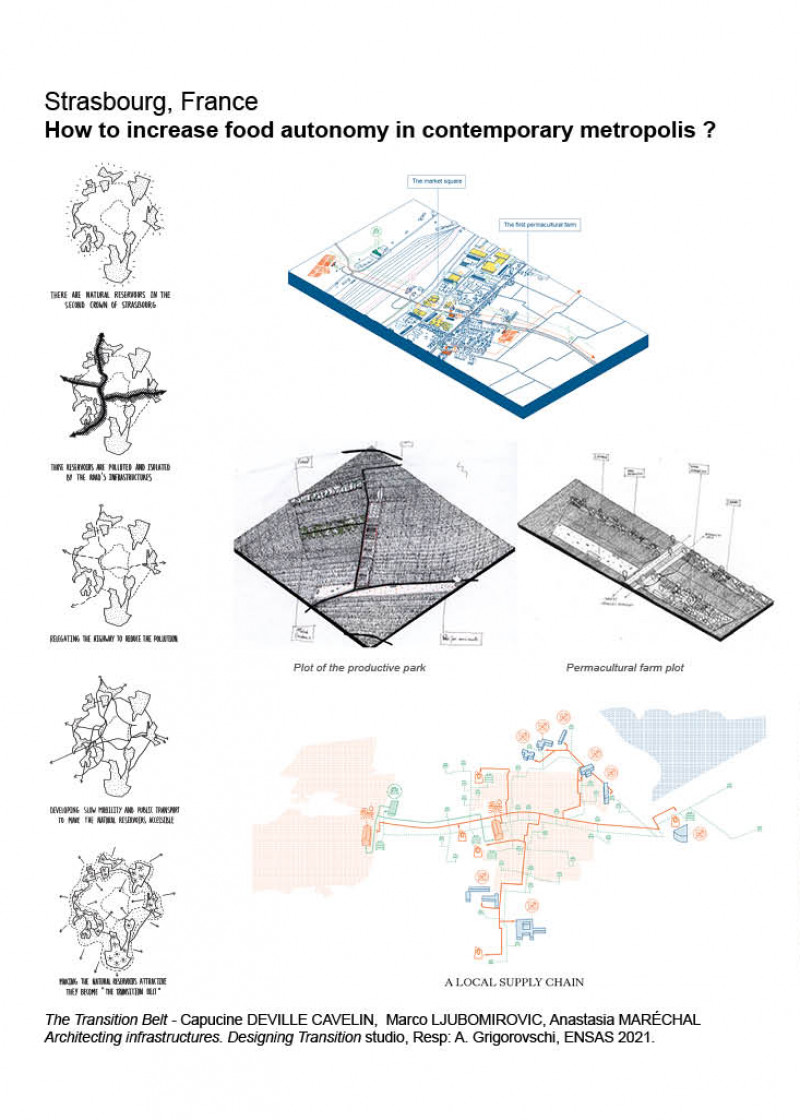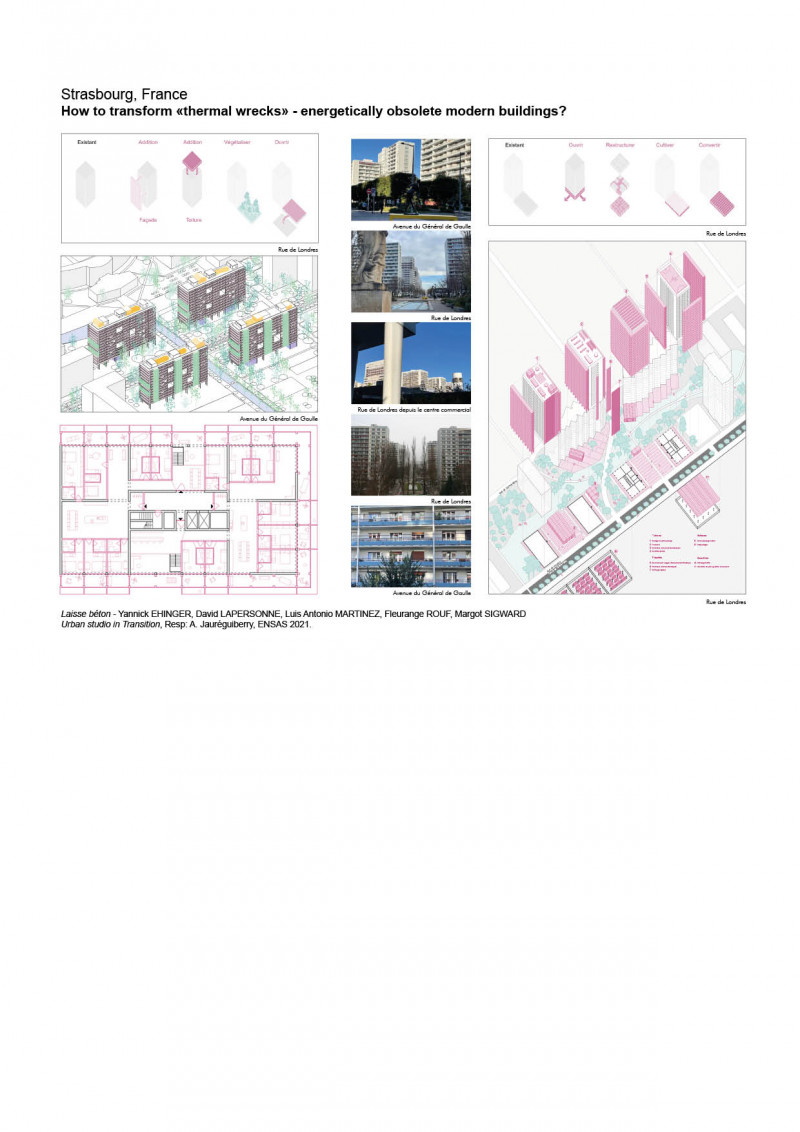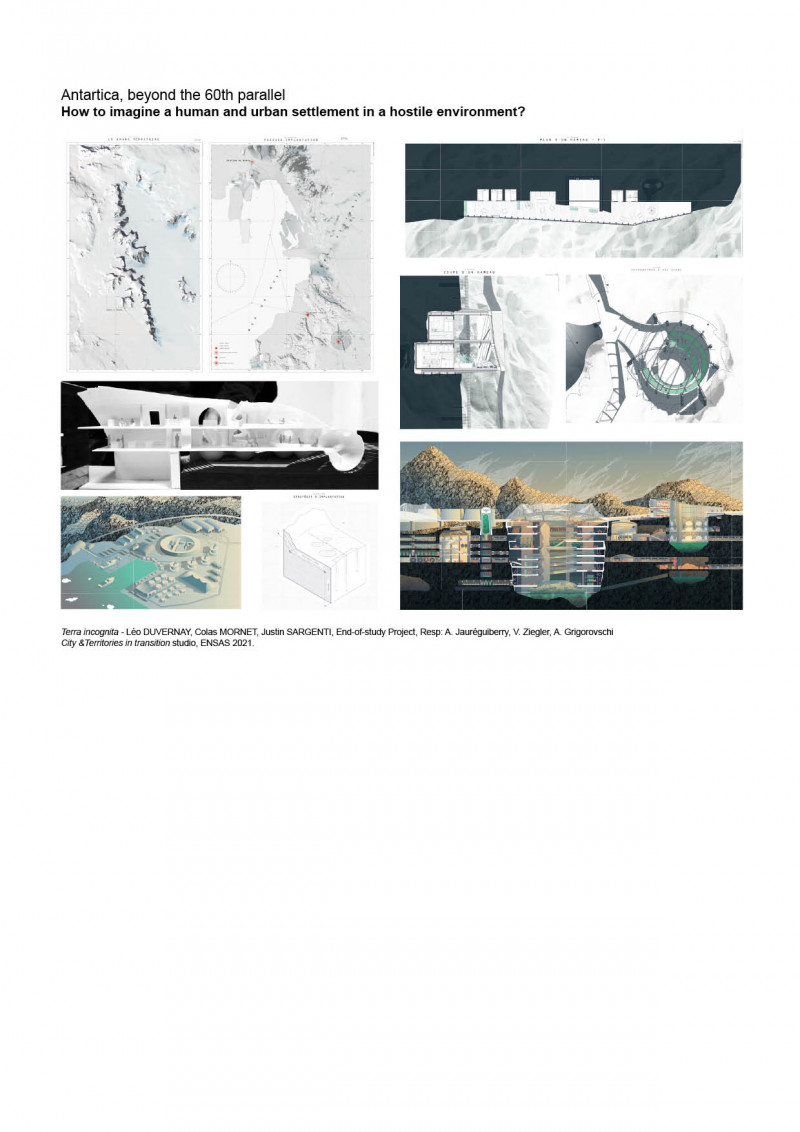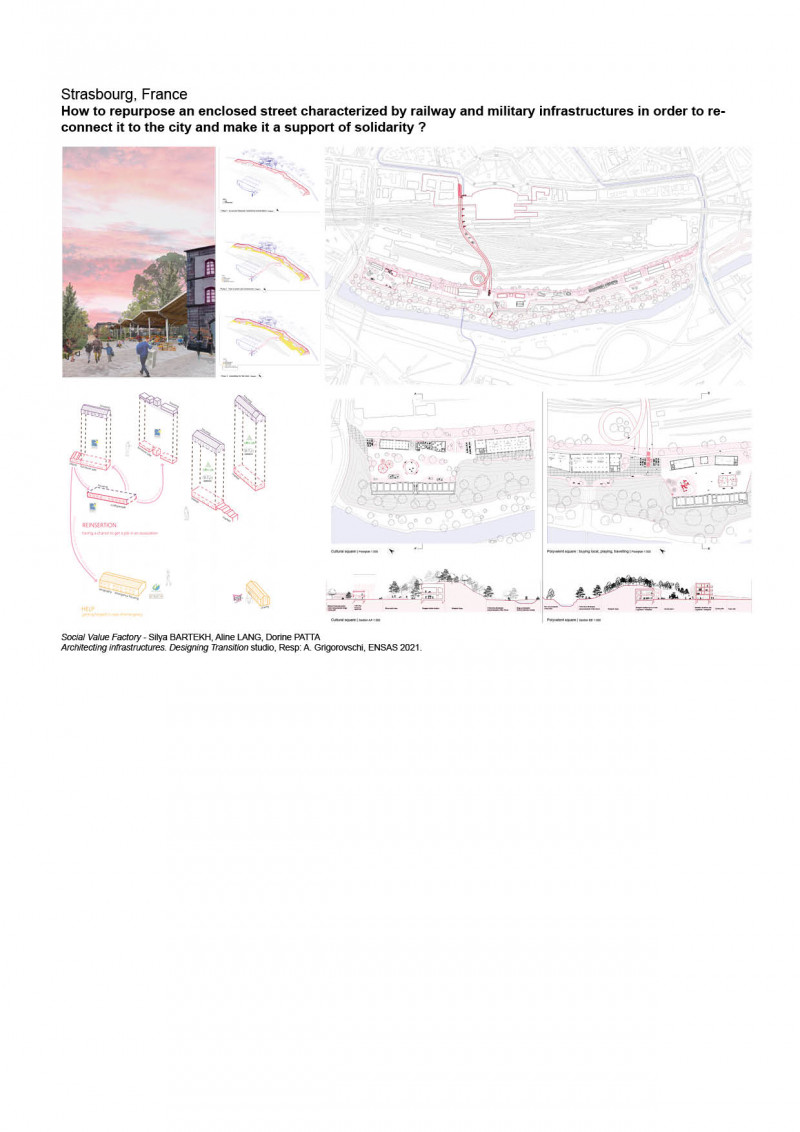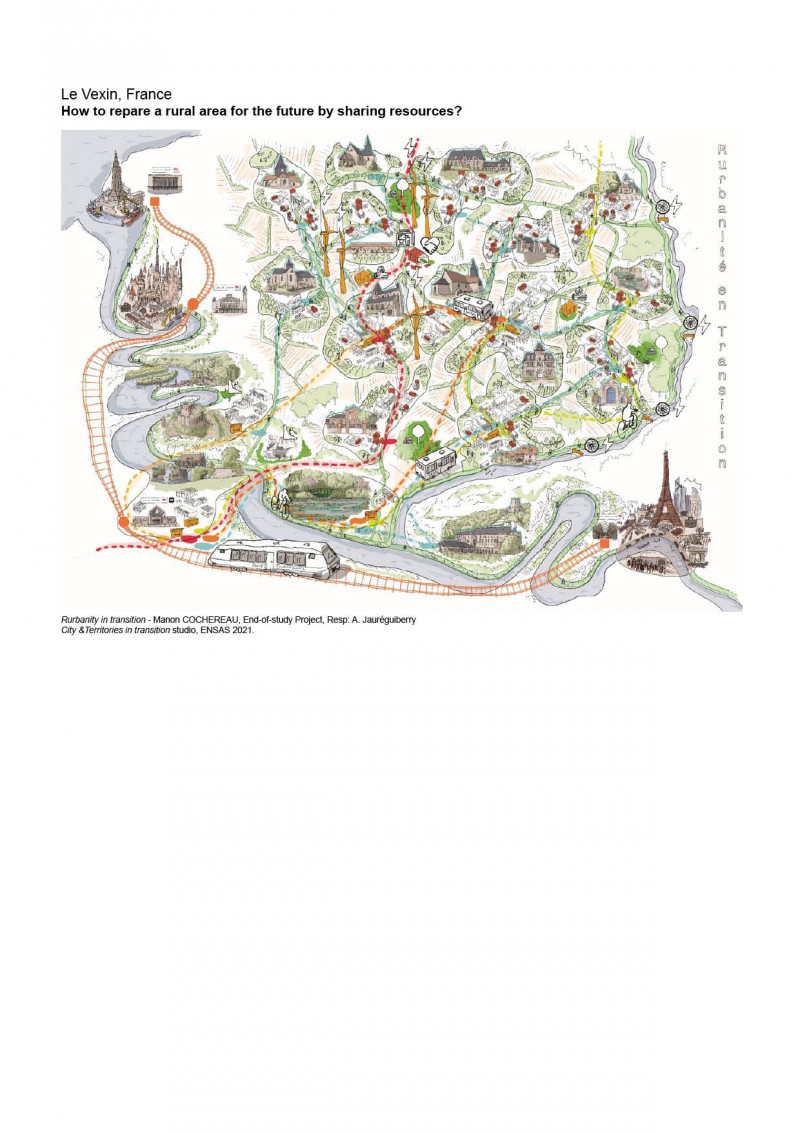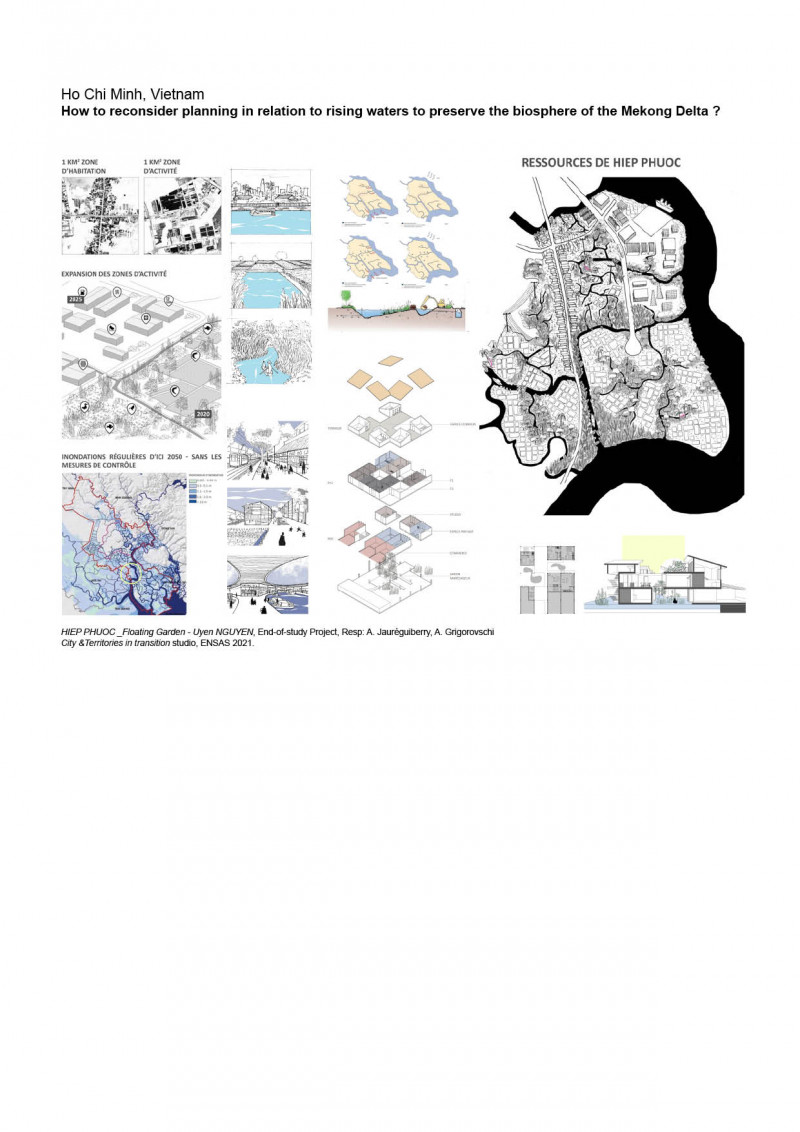Experimenting Pedagogies of Transition
In the face of today’s global crisis, designing transition opens a window towards the future, in search of local balances between available resources, ways of living, producing, distributing, consuming, and the impact on the environment.
In France, urban and territorial prospective thinking is traditionally practiced by Urban Agencies, while the local authorities have very limited use of prospective planning and design despite the lack of prefiguration and preparation of our territories in the face of climate issues.
In this context, the Architecture schools appear as places for experimenting with prospective transition projects, in relation with communal and local scales and stakeholders, in order to initiate political debate in a soft and democratic way. This paper will take on this hypothesis, and discuss the specific knowledge, skills and teaching practices for environmental transition situated projects, based on our pedagogical activity and student work developed within the last two years in three inter-scalar Project-in-transition master studios at the Strasbourg School of Architecture (ENSAS).
The paper reflects on:
(1) transition-focused design levers (obsolescence, imminent threats, creative desire)
(2) shifts in design purpose and project process challenges including redefinition of project scope, orders of necessity and conceptual perimeters through ecosystemic, metabolic and organic approaches; enlargement of project materials and more-than-human territorial actors; consideration of local cultures and their capacity to generate and sustain a shift in lifestyles, production and territorial modes (renewed solidarities, territories of commons, interrelated systems of resource governance, territorial rooted economic cycles);
(3) the shifting role of the teacher and experimental pedagogical frameworks for locally anchored transition project.
Ultimately, the paper seeks to critically position situated prospective design thinking as an alternative to unidimensional, often technical-based replicable solutions, still dominant today in ecological transition pedagogies.




